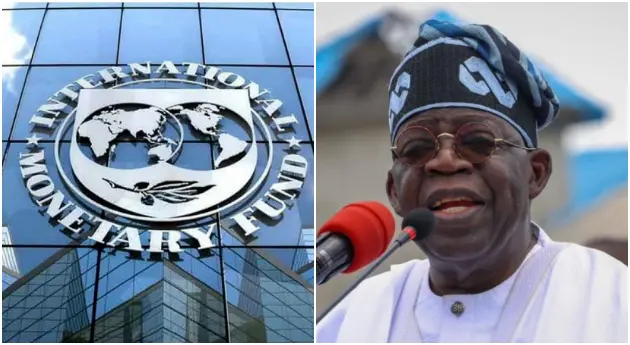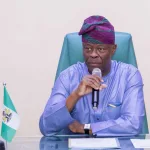As Nigeria secures $2.5 billion loan from the International Monetary Fund (IMF) to meet its financial needs, there are concerns that the country might end up repaying the loan with as much as $30 billion.
Prime Business Africa reports that the Minister of Finance and Coordinating Minister of the Economy, Wale Edun, recently announced that Nigeria has secured a $2.5 billion World Bank loan with a 1% interest rate. This would bring Nigeria’s total debt obligations to over $110 billion.
Join our WhatsApp ChannelEdun, who spoke at the annual meetings of the IMF and World Bank Group on April 20, revealed that the loan offers a 40-year term, a 10-year moratorium, and a 1% interest rate.
This means the loan will be paid off over 40 years with repayment starting from 2034.
The minister had claimed that given the condition of the loan, it is almost like offering someone free money. “It is virtually a grant. It is about 40 years, 10 years moratorium and about one percent interest. That also is part of the flow that you can count,” Edun stated.
Why Nigeria Seeks Fresh $2.5bn Loan — FG
On the use of the $2.5 billion, Minister of Budget and Economic Planning, Senator Atiku Bagudu, who appeared before the Senate and House of Representatives Joint Committee on National Planning and Economic Affairs in June, disclosed that part of the fund would be used to finance the proposed 2024 Appropriation Bill.
Economic Implications of the Loan
Bradley Rohrs, President of Rohrs Team, a real estate consulting firm based in the United States, highlighted the economic implications of the loan on Nigeria’s economy going forward.
In a video of his commentary shared on social media, Rohrs said though the offer being a $2.5 billion loan at 1% interest rate to be paid off over 40 years seems fair on the surface level, there is more economic problems lurking beneath which the country would grapple with in 10 years to come when it starts repayment.
READ ALSO: Nigeria Secures $1.71bn Foreign Loans
According to Rohrs, the loan with its terms and conditions for repayment, would “contribute to long term insolvency” of the country.
He explained that one of the conditions for the loan is that it must be paid in dollars and with the persistent depreciation of Nigeria’s currency, the naira, the country is bound to spend more in both interests and principal.
“The loan needs to be paid back in western currencies, and the naira is losing significant value every year, meaning this loan is going to end up costing 10s of billions of dollars to Nigeria within a decade. From an economic sense, the effective interest rate would be 1% plus the depreciation of the naira relative to the US dollar,” the US-based realtor, whose team has also worked in West Africa stated.
Rohrs, who stated that the naira had depreciated by 50% in the past one year, asserted that it means the interest would be 51% if the naira depreciation continues.
“This is an economy-destroying debt obligation,” he lamented, adding, “Of course because payments don’t start until 2034 when all the current politicians will be long gone when the loan starts to come due. I can understand why this was a tempting loan to take, but let’s say the naira depreciation is only 10% per year which is very generous, even in the best case scenario, that means by 2034, the principal of this loan will effectively grow from $2.5 billion to $7 billion.
“The payments will then be the equivalent of a billion dollars a year and continue for 30 years. So, for $2.5 billion today, Nigeria is agreeing to pay the Western banks $30 billion under a 10% inflation rate.”
He further pointed out that the loan comes with other concessions that should worry Nigerians. According to him, Nigeria will have to keep a large portion of the money as foreign reserves, making the country unable to spend much of it.
He mentioned that other concessions Nigeria would have to make include removing subsidies on oil and electricity among others (which will hurt the economy), enacting reforms which will make it easier for Western banks to compete with the domestic Nigerian banks.
He noted that in many ways the current administration of President Bola Ahmed Tinubu inherited the problems, but the terms of this IMF loan will not be in the good interest of the country economically in the long-term.
He stated that Nigeria has many assets both in natural resources and a talented labour pool and shouldn’t be in this level of debt burden.
He concluded by warning that the longer Nigeria remains reliant on Western banks for bailout, the longer the country will operate below its economic potential.
Victor Ezeja is a passionate journalist with seven years of experience writing on economy, politics and energy. He holds a Master's degree in Mass Communication.

















Follow Us